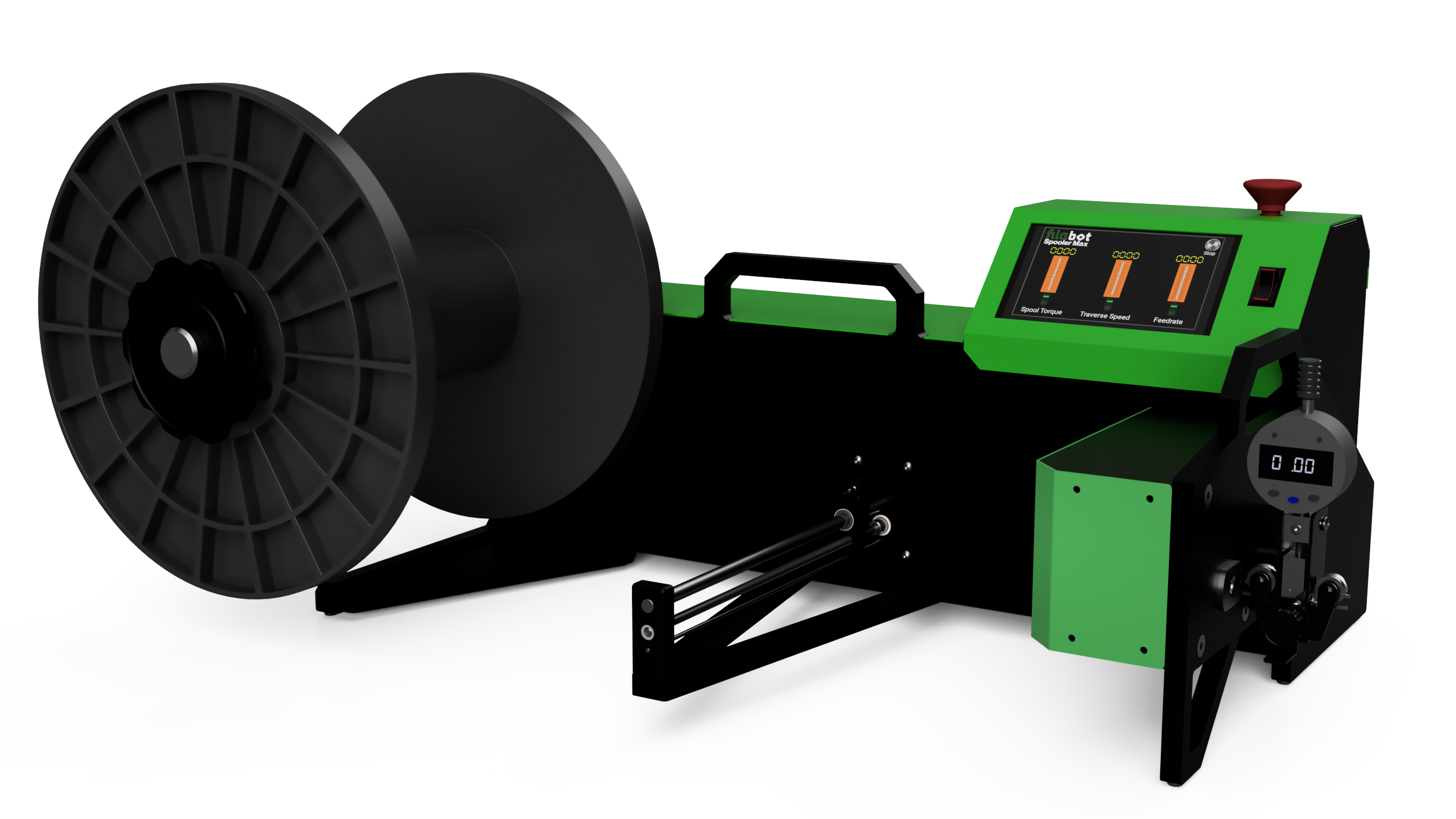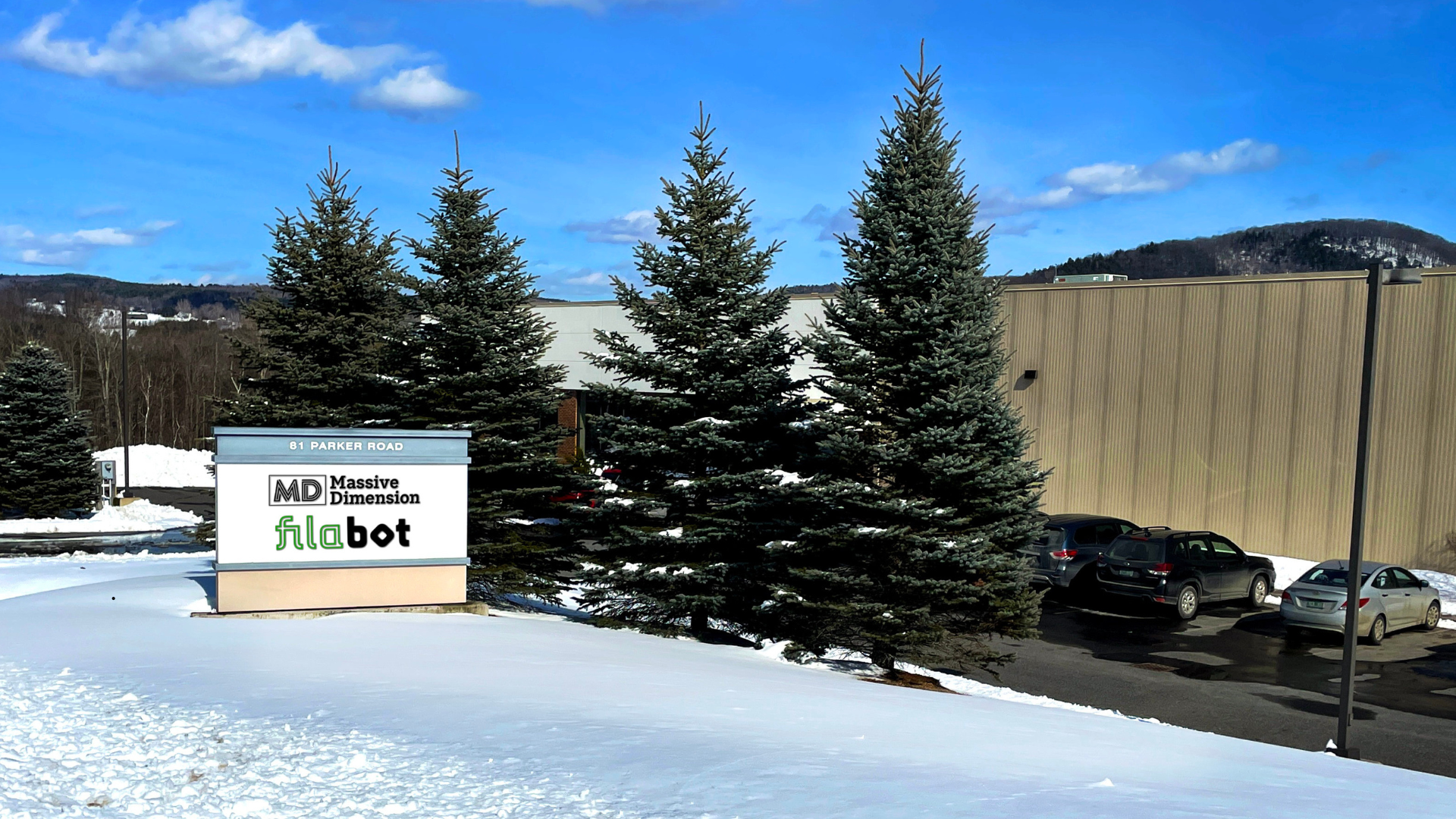IMPORTANT NOTE: Filabot no longer sells Taulman products.
Taulman 3D is known for providing the 3D printing community with materials that push the boundaries of what 3D printers can do. Taulman 3D first started out developing Nylons. Now Taulman 3D has developed a whole range of materials for any application. Filabot has been a distributor for Taulman 3D for over two years, we work very closely with Taulman 3D to bring new filaments to market. We currently have all of Taulman 3D's filaments available on our site and on our other marketplaces. We really like working with Taulman 3D because they believe that 3D printers can do more, and they develop the materials to do so. The list below is a current line up of filament from Taulman 3D that we have at Filabot.com
618 was the first nylon specifically formulated and processed for 3D Printing.
Technically, nylon 618 is an extremely high quality variety of nylon 6,6. Only one chemical company manufactures this specific variation of nylon. Both the chemical composition and post processing developed by taulman3D work together to lower the print temperature of high quality nylon as well as reduce the non-uniformity that nylons exhibit in the melted state. 618 is a pure white polymer and fully capable of absorbing acid based dyes. 618 printed with 100% fill rivals it's injection molded equivalents in strength. All of the feature of nylon that we come to depend on are at the maximum in 618. Slippery surfaces, pliability, strength, non-scrape, chemical resistance and high thermal durability.
645 was a result of the feedback from the industrial community that had started using nylon 618 as 618 was released about 6 months earlier. The industrial community made requests for a higher strength nylon, as well as a polymer that was easier to evaluate in the final part/print. taulman3D worked with industry to develop nylon 645. Nylon 645 is a nylon 6/9, or a variant of nylon 6 and nylon 6T with a crystallinity optimization process. This provides a high degree of transparency. The transparency allows the industrial quality control groups to evaluate printed parts without destructive evaluation. They can easily look through the perimeters and make a determination as to the adhesion of inner fills. 645 is a 50% transparent white color. It has a higher strength than 618 and is about 20% less pliable. 645 will dye with acid based dyes. Even though the polymer is less pliable, it maintains the slippery surface feature of nylons. Also as a nylon 6T variant, clumping is almost non-existent. 645 is a preffered polymer when parts to be printed will be subject to high stresses. As an extremely durable polymer, it handles stress at elevated temperatures. Depending on use, as high as 160C. 645 has the same chemical resistance as 618, but has 20% more resistance to chlorides.
t-glase is a high quality Polyethylene terephthalate polymer. It is modified to provide a 5% higher amount of reflectivity making it more equivalent to a glass polymer. t-glase is also processed using the same techniques taulman3D developed for nylon. Full processing allows for a polymer that easily prints at 212C. A temperature easily obtained by all FFM 3D Printers. t-glase is also a high strength polymer meant for industrial applications. The major advantage of t-glase to all other polymers, is layer to layer bonding. Because the polymer bonds so well, there is no need to smash a large number of thin layers together to accommodate a good bond. Industry uses layer settings that are 70% to 100% of the nozzle dia with excellent results. t-glase has a very low shrinkage factor and is best printed on acrylic or glass print beds heated from 50C to 80C depending on part size. As with nylon 645, 680 and 910, the clarity of t-glase supports industrial non-destructive evaluations. In addition, t-glase is a directly printable polymer for glass clear jewelry. Users should watch the blogs for new 3D Printing jewelry designers to start advertising. And due to the additional reflectivity, t-glase is considered the only high transmission light-pipe polymer. Due to it's chemical make-up, light transitions easily along the path of a printed thread. This allows the designer to draw and print a light-pipe with any path required. t-glase can not be colored with standard dyes. Instead, special dyes are injected at the output master die during manufacturing. t-glase comes in the following colors:
Clear
transparent Orion Blue
transparent Red
transparent Black
transparent Green
910 is also an FDA approved polymer. It has similar properties to 680, however, is not compatible with low temperature medical sterilization techniques, i.e. Ethylene oxide or others. 910 is also a much stiffer nylon than our 618 and 645. 910 is meant for high temperature high strength high durability uses. Cooking utensils, direct food and drink containers, etc. In addition, nylon 910 is an excellent material for molding where the poured mixture may go through high temperature thermal set-up.
The new Industrial PLA known as In-PLA from taulman3D is a true advancement in PLA 3D Printing material. With a new formulation, the color and clarity of natural In-PLA is a clear material rather than the yellowish colors users have been printing with for years. A major advantage of PLA is it's low shrinkage specification. This allows PLA to be used where mechanical Form/Fit is a requirement in initial part design. A major disadvantage has been the Brittle characteristic of std PLA. While parts have good shape, they are prone to shatter when dropped, similar to glass. This is due to an extremely small elongation.
680 is a medical grade nylon made with a FDA approved polymer. Post processing allows for smooth 3D printing in the same temperature range as other taulman nylons. 680 is slightly more transparent than nylon 645. Again, this is to support non-destructive visual inspection of the printed part. 680 comes with 2 QR codes. One is for technical information needed by 3D Printers. The 2nd is for traceability. 680 is a non-leaching FDA nylon that's capable of low temperature sterilization techniques. Specifically, Ethylene oxide and high temperature sterilization as in Flash Steam post processing. 680 is much less pliable than nylon 645 as it is intended to support a long list of medical uses. 680 is currently in community testing.
NOTE: Nylon 680, will be a controlled material as to date code, batch code and processing codes. Available to everyone, each user will be automatically assigned a "User ID". This allows each spool to be traced back to taulman3D for verification. Unlike our other products, 680 will be labeled on both spool flanges and no additional labels are allowed.


